Abstract
A total of 889 cord blood samples collected from newborn infants of both sexes and 563 samples of venous blood collected from adult males in Iraq were examined for evidence of glucose-6-phosphate dehydrogenase (G6PD) deficiency. The deficiency was proved to exist in all ethnic groups in Iraq and in both adult males and infants. The overall incidence of the deficiency was 8.9% in the adults and 8.4% in the infants. The difference is not statistically significant. Evidence is given to suggest that favism (“khsaissa”) is known to the people of southern Iraq.
Full text
PDF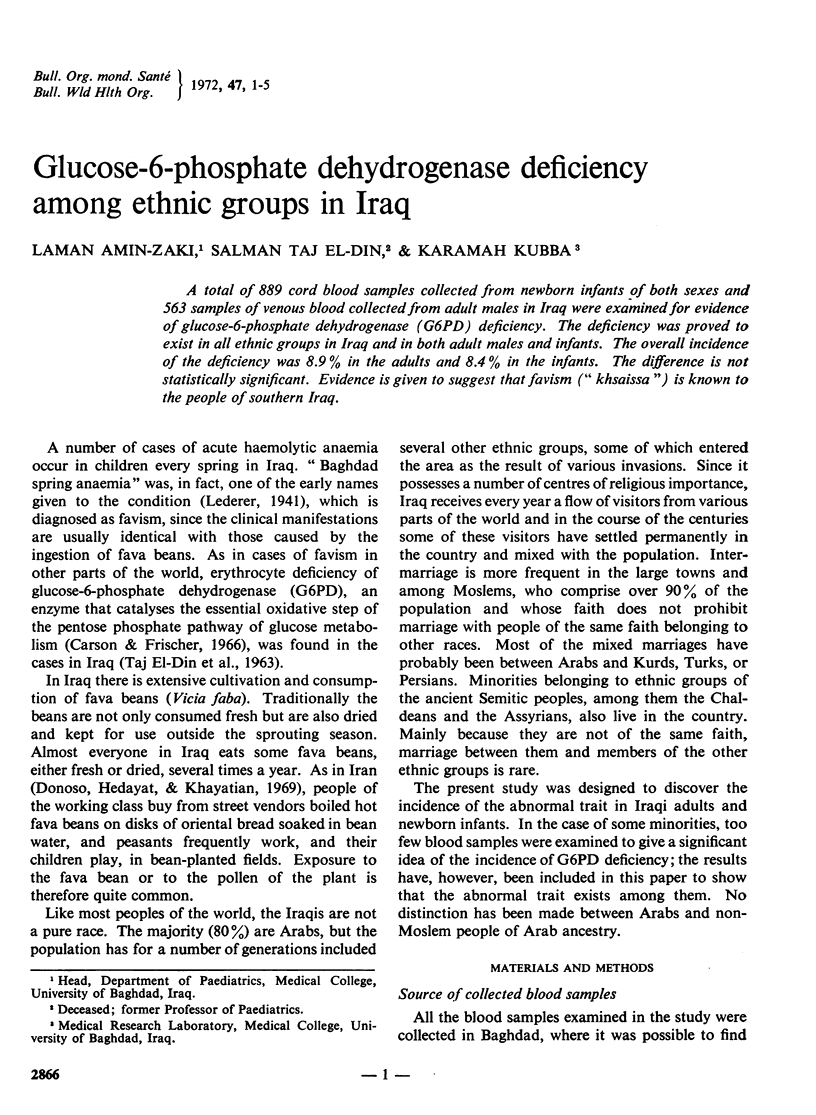
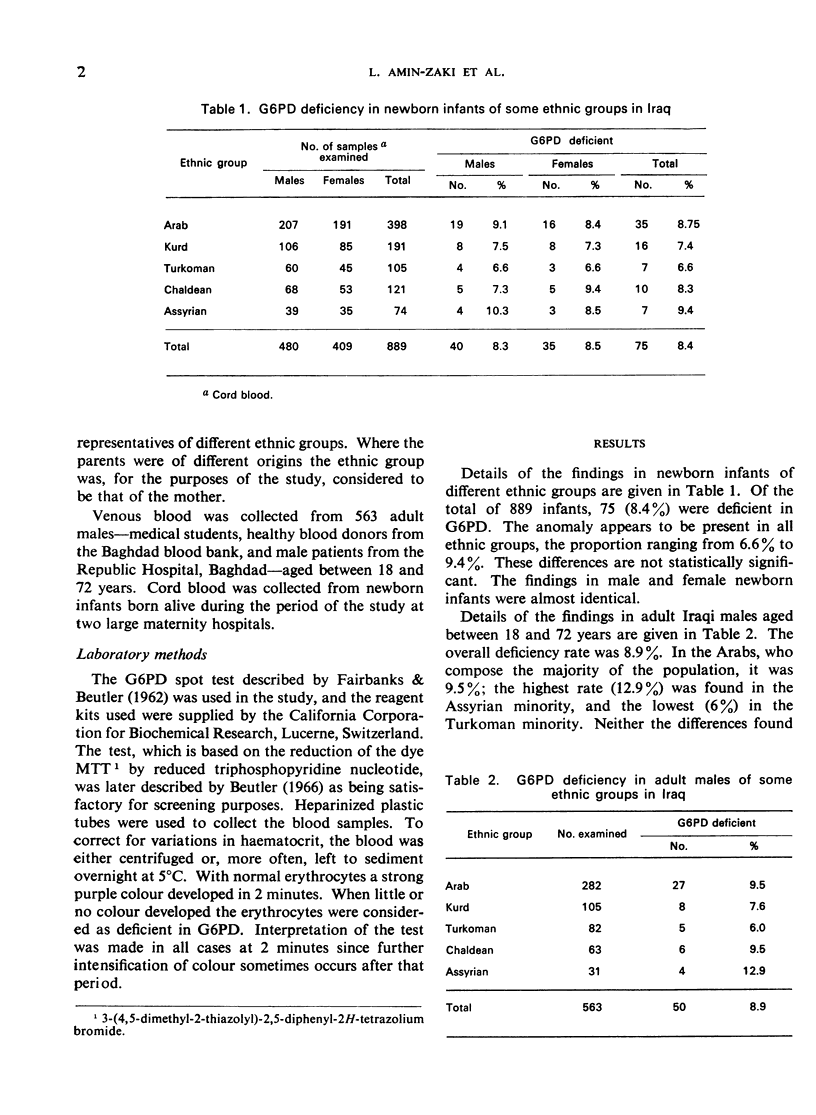
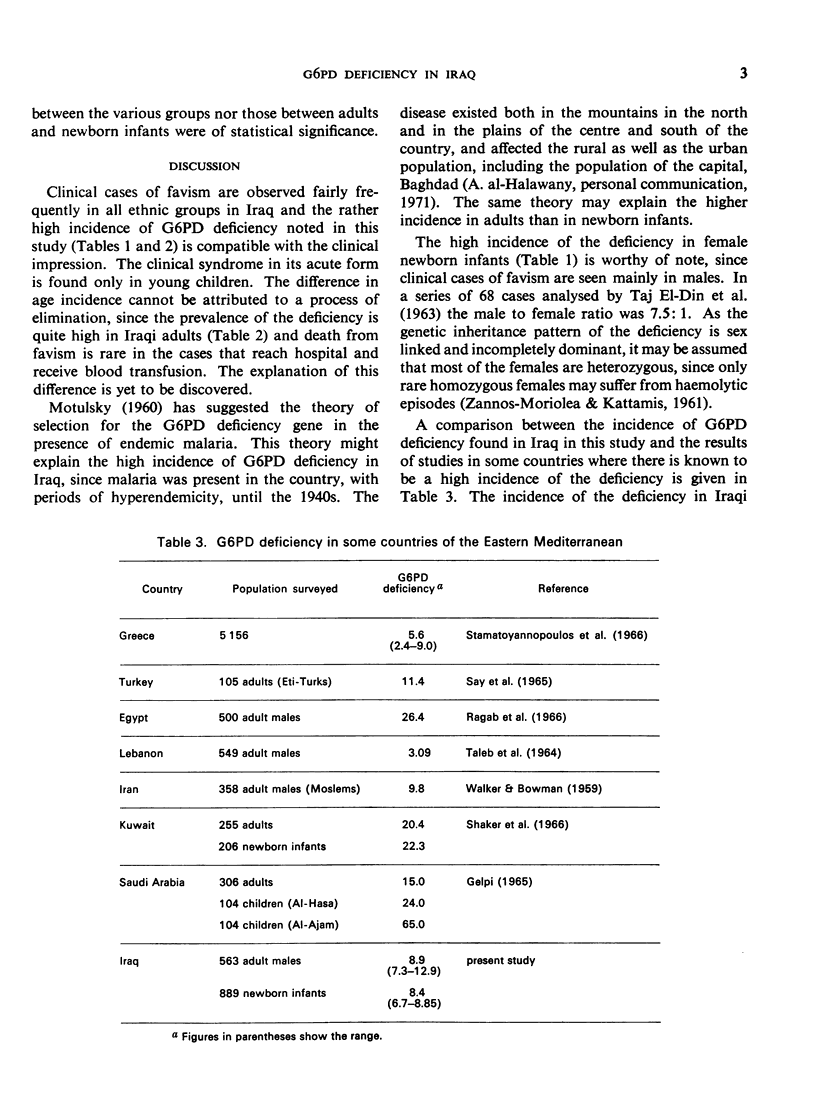
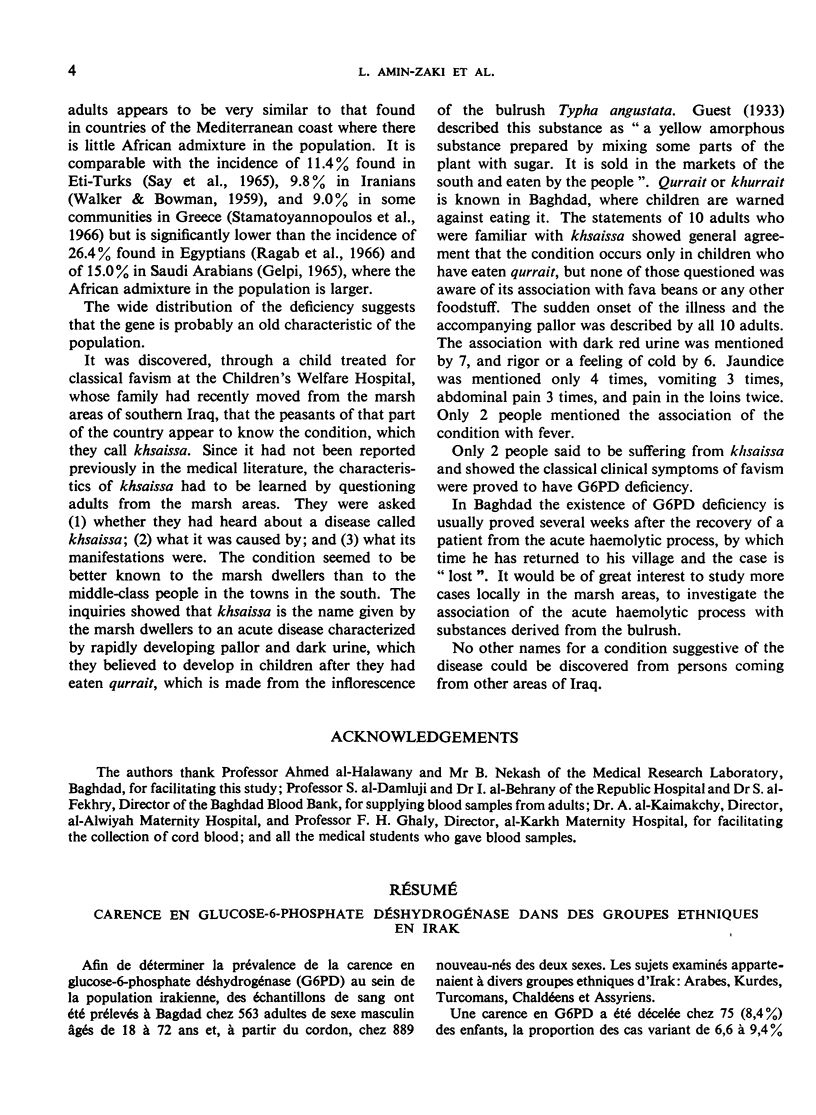
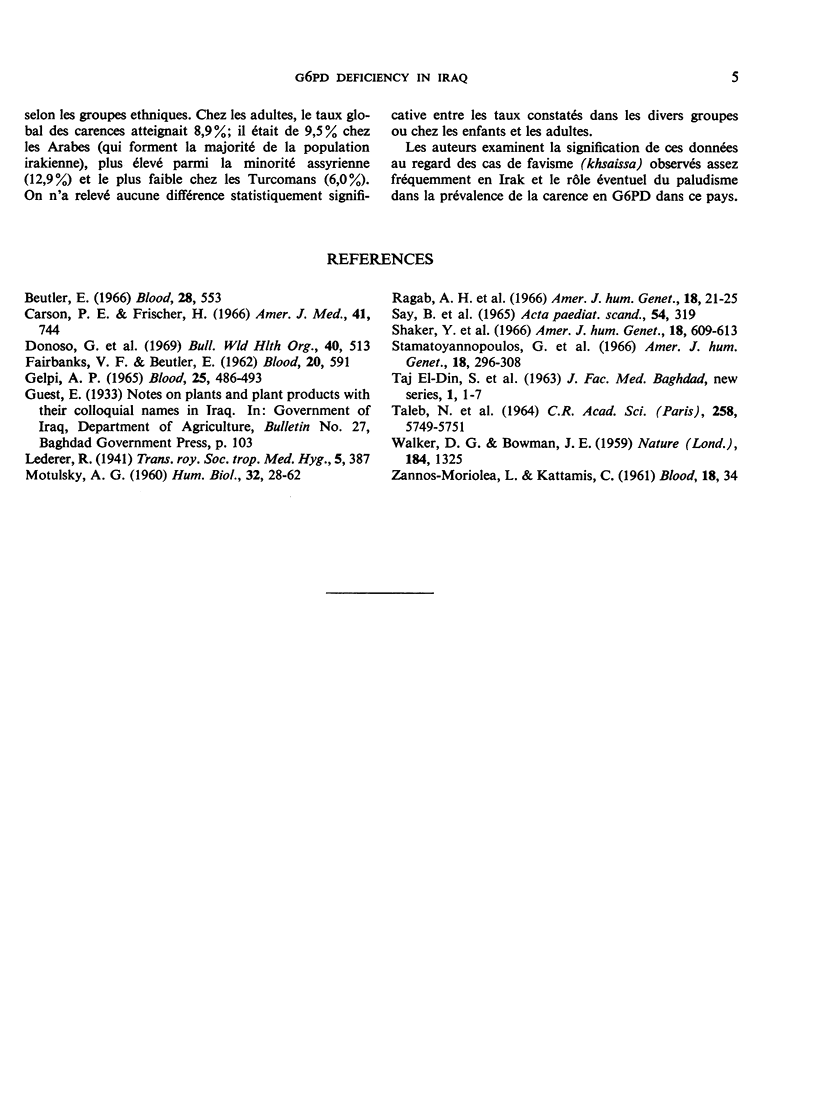
Selected References
These references are in PubMed. This may not be the complete list of references from this article.
- Beutler E. A series of new screening procedures for pyruvate kinase deficiency, glucose-6-phosphate dehydrogenase deficiency, and glutathione reductase deficiency. Blood. 1966 Oct;28(4):553–562. [PubMed] [Google Scholar]
- Carson P. E., Frischer H. Glucose-6-phosphate dehydrogenase deficiency and related disorders of the pentose phosphate pathway. Am J Med. 1966 Nov;41(5):744–761. doi: 10.1016/0002-9343(66)90035-0. [DOI] [PubMed] [Google Scholar]
- Donoso G., Hedayat H., Khayatian H. Favism, with special reference to Iran. Bull World Health Organ. 1969 Apr;40(4):513–519. [PMC free article] [PubMed] [Google Scholar]
- GELPI A. P. GLUCOSE-6-PHOSPHATE DEHYDROGENASE DEFICIENCY IN SAUDI ARABIA: A SURVEY. Blood. 1965 Apr;25:486–493. [PubMed] [Google Scholar]
- MOTULSKY A. G. Metabolic polymorphisms and the role of infectious diseases in human evolution. Hum Biol. 1960 Feb;32:28–62. [PubMed] [Google Scholar]
- Ragab A. H., el-Alfi O. S., Abboud M. A. Incidence of glucose-6-phosphate dehydrogenase deficiency in Egypt. Am J Hum Genet. 1966 Jan;18(1):21–25. [PMC free article] [PubMed] [Google Scholar]
- SAY B., OZAND P., BERKEL I., CEVIK N. ERYTHROCYTE GLUCOSE-6-PHOSPHATE DEHYDROGENASE DEFICIENCY IN TURKEY. Acta Paediatr Scand. 1965 Jul;54:319–324. doi: 10.1111/j.1651-2227.1965.tb06378.x. [DOI] [PubMed] [Google Scholar]
- Shaker Y., Onsi A., Aziz R. The frequency of glucose-6-phosphate dehydrogenase deficiency in the newborns and adults in Kuwait. Am J Hum Genet. 1966 Nov;18(6):609–613. [PMC free article] [PubMed] [Google Scholar]
- Stamatoyannopoulos G., Panayotopoulos A., Motulsky A. G. The distribution of glucose-6-phosphate dehydrogenase deficiency in Greece. Am J Hum Genet. 1966 May;18(3):296–308. [PMC free article] [PubMed] [Google Scholar]
- TALEB N., LOISELET J., GUORRA F., SFEIR H. SUR LA D'EFICIENCE EN GLUCOSE-6-PHOSPHATE-D'ESHYDROG'ENASE DANS LES POPULATIONS AUTOCHTONES DU LIBAN. C R Hebd Seances Acad Sci. 1964 Jun 8;258:5749–5751. [PubMed] [Google Scholar]
- WALKER D. G., BOWMAN J. E. Glutathione stability of erythrocytes in Iranians. Nature. 1959 Oct 24;184(Suppl 17):1325–1325. doi: 10.1038/1841325a0. [DOI] [PubMed] [Google Scholar]
- ZANNOS-MARIOLEA L., KATTAMIS C. Glucose-6-phosphate dehydrogenase deficiency in Greece. Blood. 1961 Jul;18:34–47. [PubMed] [Google Scholar]


